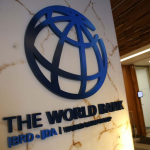Kwara State is intensifying its push to create a more supportive and efficient environment for small and medium-sized enterprises (SMEs) through the implementation of its State Action on Business Enabling Reforms (SABER) programme. The state government says these reforms are essential to building a vibrant local economy driven by entrepreneurship, innovation, and private investment.
In a recent technical workshop and town hall meeting held in Ilorin, state officials and business leaders gathered to assess progress, share insights, and reinforce partnerships. The event, held in collaboration with the Presidential Enabling Business Environment Council (PEBEC), highlighted how strategic policy reforms are already reshaping the business landscape in the state.
Kwara’s Commissioner for Finance and Chair of the Ease of Doing Business Council, Dr. Hauwa Nuru, noted that the SABER programme is addressing long-standing bottlenecks that have discouraged business growth. According to her, the state is focusing on simplifying business registration processes, streamlining land administration, and introducing greater transparency in tax and procurement systems.
“The SABER framework helps us build systems that are not only investor-friendly but also beneficial to our local entrepreneurs. We are leveraging technology to reduce the cost of doing business and ensure that services are accessible, transparent, and accountable,” she said.
PEBEC representative, Mr. Shima Kennedy, commended Kwara State for embracing the national reform agenda and reiterated the council’s mandate to eliminate red tape and promote a more efficient regulatory environment across the country. He emphasised that the goal is to ensure that Nigerian SMEs, including those in Kwara, operate in a system that supports their growth and enables long-term sustainability.
For small business owners in Kwara, these efforts are beginning to bear fruit. Entrepreneurs are gaining quicker access to essential services, while administrative delays that once hampered operations are being reduced.
The Chairman of the Kwara State Internal Revenue Service (KWIRS), Mrs. Folashade Omoniyi, stressed that the success of SMEs is central to the state’s economic strategy. “When we talk about job creation, inclusive development, and economic resilience, we are ultimately talking about empowering our small businesses. That is why these reforms are critical,” she said.
Kwara’s business reform drive reflects a broader national movement aimed at making Nigeria a more attractive destination for investment. However, its localised approach focused on practical, measurable improvements sets it apart as a state committed to unlocking the full potential of its entrepreneurs.
As the SABER programme continues, stakeholders say they are optimistic about the state’s ability to maintain momentum and build a business environment where SMEs not only survive but thrive.










